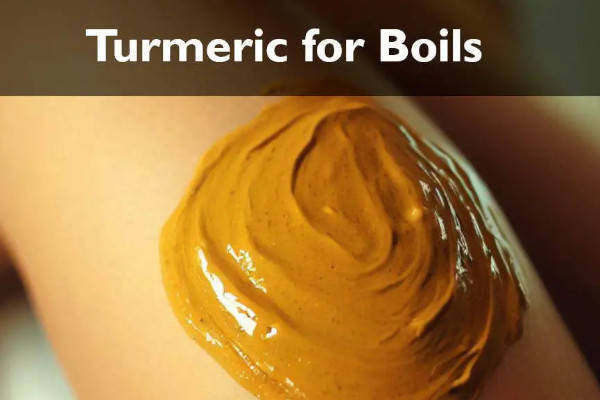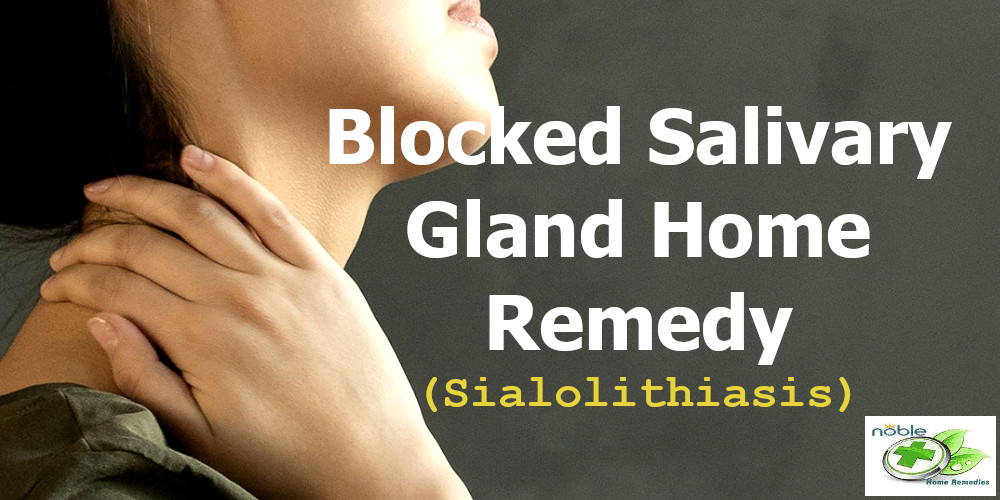7 Powerful Home Remedies for Gum Boils: For A Quick Relief!
Are you suffering from the discomfort and pain of gum boils? If so, you’re not alone.
Gum boils, also known as gum abscesses, are localized infections that can cause swelling, tenderness, and even pus-filled bumps on the gums. They usually occur as a result of bacterial infection, often stemming from poor oral hygiene, gum disease, or dental trauma. If left untreated, gum boils can lead to further complications and worsen oral health.
When faced with the inconvenience and discomfort of gum boils, finding effective home remedies for quick relief becomes paramount. Fortunately, powerful natural remedies can help alleviate symptoms, reduce inflammation, and promote healing. In this article, we will explore ten potent home remedies for gum boils that bring quick relief.
By opting for home remedies, you can take control of your oral health and address gum boils safely and naturally. These remedies offer the advantage of being easily accessible, cost-effective, and often free from unwanted side effects.
Note: While home remedies can offer temporary relief, it’s important to consult a dental professional if your gum boils persist or worsen. A dentist will be able to diagnose the underlying cause and provide appropriate treatment.
Home Remedies for Gum Boils For a Quick Relief

Here are the best home remedies for gum boils that can help you get faster relief from pain and discomfort. Many of the remedies have the natural antibiotic effect on healing your gum boils
1. Tea Tree Oil
One of the most potent natural remedies for gum boils is tea tree oil. Renowned for its powerful antibacterial properties, tea tree oil can effectively combat the bacteria responsible for gum infections.s
This essential oil is derived from the leaves of the Melaleuca alternifolia tree, which is native to Australia. Its active component, terpinen-4-ol, possesses strong antimicrobial and anti-inflammatory qualities that make it an excellent choice for gum boil treatment.
To use tea tree oil for gum boil relief, follow these simple steps:
- Dilute the tea tree oil: Mix 2-3 drops of tea tree oil with carrier oil such as coconut oil or olive oil. This is essential to prevent any potential skin irritation or sensitivity.
- Apply the diluted tea tree oil: Using a cotton swab or clean finger, gently apply the diluted tea tree oil to the affected area of the gum boil. Make sure to cover the entire surface.
- Leave it on: Allow the tea tree oil to sit on the gum boil for about 10-15 minutes. During this time, the antibacterial properties of the oil will work to combat the infection.
- Rinse thoroughly: After the designated time, rinse your mouth thoroughly with warm water. Spit out the water and repeat this process 2-3 times a day until the gum boil starts to heal.
While tea tree oil is generally safe for topical use, it’s important to take some precautions and be aware of potential side effects:
- Never ingest tea tree oil as it can be toxic when swallowed.
- Always dilute tea tree oil before applying it to the skin or gums to avoid irritation.
Perform a patch test on a small area of skin before using tea tree oil for the first time to check for any adverse reactions. - If you experience any allergic reactions or skin irritation, discontinue use and consult a healthcare professional.
Tea tree oil can be a powerful ally in your quest for gum boil relief. Its natural antibacterial properties can help combat the infection and reduce inflammation. However, if your symptoms worsen or persist, it is recommended to seek advice from a dental professional for a proper diagnosis and appropriate treatment.
2. Saltwater Rinse
Another effective and easily accessible home remedy for gum boils is a simple saltwater rinse. Saltwater has been used for centuries as a natural remedy for oral health issues due to its ability to reduce inflammation and kill bacteria. By incorporating saltwater rinses into your oral hygiene routine, you can promote healing and alleviate the discomfort caused by gum boils.
Here’s a step-by-step guide on preparing and using a saltwater rinse:
- Prepare the saline solution: Dissolve half a teaspoon of salt in a cup of warm water. Ensure that the water is warm, not hot, as excessive heat can worsen gum sensitivity.
- Mix well: Stir the mixture until the salt is completely dissolved. This will create a saline solution that is ready for use.
- Rinse your mouth: Take a small sip of the saltwater solution and swish it around your mouth for about 30 seconds. Focus on the area where the gum boil is present, ensuring that the solution reaches the affected area.
- Spit it out: After swishing the salt water around your mouth, spit it out into the sink. Do not swallow the solution, as it may contain bacteria and debris.
- Repeat the process: Repeat the saltwater rinse 2-3 times a day or as recommended by your dentist. Regular rinsing with salt water can help reduce inflammation, soothe the gums, and assist in killing bacteria.
The benefits of using a saltwater rinse for gum boils are twofold. Firstly, the salt acts as a natural disinfectant, helping to kill harmful bacteria in the mouth. Secondly, warm salt water helps to reduce inflammation, providing relief from the swelling and tenderness associated with gum boils.
It’s important to note that while saltwater rinses can be beneficial, they should not replace regular brushing and flossing. Saltwater rinses are intended as a complementary treatment and should be used in conjunction with a proper oral hygiene routine.
Incorporating saltwater rinses into your daily routine can be a simple yet effective way to promote gum boil relief. However, if your symptoms persist or worsen, it’s recommended to consult a dental professional for a thorough evaluation and appropriate treatment.
3. Garlic
Garlic, known for its distinct flavor and aroma, is not just a culinary ingredient but also a powerful home remedy for gum boils. This pungent herb possesses antimicrobial properties that can help combat the bacteria responsible for gum infections. It contains a compound called allicin, which exhibits strong antibacterial and antifungal properties, making it an excellent choice for gum boil relief.
Here’s how you can use garlic to alleviate the discomfort caused by gum boils:
- Raw Garlic: Peel a fresh garlic clove and crush it to release the beneficial compounds. Apply the crushed garlic directly to the affected area of the gum boil. Leave it on for 5-10 minutes, allowing the antimicrobial properties to take effect. Rinse your mouth thoroughly with water to remove any residue. Repeat this process 2-3 times a day.
- Garlic Oil: Alternatively, you can use garlic-infused oil. In a small container, crush a few garlic cloves and mix it with a carrier oil, such as olive or coconut oil. Let the mixture sit for a few hours or overnight to allow the oil to absorb the garlic’s beneficial properties. Apply a small amount of the garlic-infused oil to the gum boil using a clean cotton swab. Leave it on for 10-15 minutes, then rinse your mouth with water. Repeat this process 2-3 times a day.
While garlic can be an effective home remedy for gum boils, addressing potential odor concerns is important. Garlic has a strong smell that can linger in the mouth, causing temporary bad breath. To minimize this issue, consider the following tips:
- Chew on a few fresh mint leaves or parsley after using garlic to help freshen your breath.
- Rinse your mouth with a natural mouthwash or saltwater solution to reduce the odor.
- Practice good oral hygiene by brushing your teeth and tongue thoroughly to minimize garlic odor.
It’s worth noting that some individuals may be allergic to garlic. If you experience allergic reactions such as itching, swelling, or difficulty breathing, discontinue use and seek medical attention.
Garlic offers a natural and potent solution for gum boil relief. Its antimicrobial properties can help combat the infection and reduce inflammation. Remember to address any odor concerns by following the tips mentioned above.
4. Turmeric Paste
Turmeric, a vibrant yellow spice commonly used in cooking, is not only a flavorful addition to dishes but also a remarkable home remedy for gum boils. This ancient spice has been valued for centuries due to its potent anti-inflammatory and healing properties. Curcumin, the active compound in turmeric, is responsible for its therapeutic effects and can aid in reducing inflammation and promoting the healing of gum boils.
To harness the power of turmeric for gum boil relief, follow these instructions to create a turmeric paste:
- Gather the ingredients: You will need 1 teaspoon of turmeric powder, 1/2 teaspoon of water, and 1/2 teaspoon of coconut oil or olive oil (as a binder) to make the paste.
- Mix the ingredients: In a small bowl, combine the turmeric powder, water, and oil. Mix well until you achieve a thick paste-like consistency. Adjust the water or oil quantity as needed to achieve the desired texture.
- Apply the turmeric paste: Using a clean finger or a cotton swab, apply the turmeric paste directly to the gum boil. Ensure that the affected area is thoroughly covered with the paste.
- Allow it to sit: Leave the turmeric paste on the gum boil for 10-15 minutes to allow the curcumin to work its magic. During this time, the paste will help reduce inflammation and provide relief.
- Rinse your mouth: After the designated time, rinse your mouth with warm water to remove the turmeric paste. Gently swish the water around the mouth to ensure all remnants of the paste are removed. Spit out the water and avoid swallowing it.
It’s important to note that turmeric has a vibrant yellow color that can temporarily stain the teeth. However, regular brushing with good toothpaste should help remove any residual stains. If you have concerns about staining, you can use a soft toothbrush and a small amount of toothpaste to brush your teeth immediately after rinsing.
Turmeric paste offers a natural and effective way to reduce inflammation and promote the healing of gum boils. By incorporating this powerful remedy into your oral care routine, you can find quick relief and support the overall health of your gums.
5. Warm Compress
A warm compress can be a soothing and effective home remedy for gum boils. The application of heat can help alleviate pain, reduce inflammation, and promote healing in the affected area. By increasing blood circulation to the gum boil, a warm compress can aid in the body’s natural healing process and provide quick relief from discomfort.
Here’s how to properly apply a warm compress to the affected area:
- Prepare a warm compress: Start by soaking a clean cloth in warm water. Ensure that the water is comfortably warm and not too hot to avoid burning yourself. Wring out any excess water from the cloth.
- Apply the warm compress: Gently place the warm, damp cloth on the gum boil area. Hold it in place for 5-10 minutes, allowing the warmth to penetrate and provide relief. You may choose to press lightly or simply let the warmth do its work.
- Reheat the compress if needed: If the warm compress starts to cool down, you can reheat it by dipping it back into warm water and wringing out the excess. Continue to reapply the warm compress for 10-15 minutes, ensuring the area remains comfortably warm throughout the process.
- Repeat as necessary: You can apply the warm compress multiple times a day, as needed, to alleviate pain and promote healing. Regular use of warm compresses can help reduce inflammation and discomfort associated with gum boils.
It’s important to note that while a warm compress can provide temporary relief, it is not a substitute for proper dental care. If your gum boil persists, worsens, or is accompanied by other symptoms, it is essential to consult a dental professional for a proper diagnosis and appropriate treatment.
When applying a warm compress, always be cautious of the temperature to avoid burns or further discomfort. If the warm compress feels too hot or causes excessive pain, remove it immediately and allow the area to cool down.
6. Aloe Vera Gel
Aloe vera, known for its soothing properties, is a natural remedy that can relieve gum boils. This gel-like substance derived from the aloe vera plant offers a combination of soothing and antimicrobial benefits, making it a valuable addition to treating your gum boil.
Here’s how to effectively use aloe vera gel for gum boil relief:
- Select fresh aloe vera gel: Choose a mature aloe vera leaf and carefully extract the gel by slicing it open lengthwise. Scoop out the gel using a spoon or scrape it off with a knife. Ensure that you have enough gel to cover the gum boil area.
- Apply the aloe vera gel: Gently apply the fresh aloe vera gel directly to the gum boil area. Make sure to cover the entire affected area with a thick layer of gel. Allow the gel to sit on the gum boil for 10-15 minutes, giving it ample time to work its magic.
- Rinse your mouth: After the designated time, rinse your mouth with lukewarm water to remove the aloe vera gel. Gently swish the water around to ensure the gel is thoroughly rinsed away. Spit out the water and avoid swallowing it.
Aloe vera gel boasts both soothing and antimicrobial properties, making it an excellent remedy to treat gum boils. Its soothing nature can help reduce inflammation and provide relief from discomfort. Additionally, the gel contains antimicrobial compounds that can aid in fighting off the bacteria causing the gum to boil.
It’s worth noting that if you don’t have access to fresh aloe vera gel, you can opt for commercially available aloe vera gel products. Ensure that the product is 100% pure aloe vera gel without any added ingredients or preservatives for optimal benefits.
While aloe vera gel is generally safe to use, some individuals may be allergic to aloe vera. Perform a patch test by applying a small amount of aloe vera gel to your forearm and wait for 24 hours to check for any adverse reactions. If you experience any signs of allergy, such as redness, itching, or swelling, discontinue use and consult a healthcare professional.
7. Essential Oils
Essential oils, such as clove oil, peppermint oil, or oregano oil, offer a natural and potent solution for gum boil relief. These oils are known for their antimicrobial and soothing properties, making them valuable additions to your home remedy arsenal.
Here’s how you can effectively use essential oils for gum boil relief:
- Select the appropriate essential oil: Clove oil and peppermint oil are particularly great remedies for gum boils due to their antimicrobial properties and ability to provide soothing relief. These oils can help combat the bacteria causing the infection and alleviate discomfort.
- Dilute the essential oil: Essential oils are highly concentrated and should be diluted before use to prevent any potential adverse reactions. Mix a few drops of the essential oil with a carrier oil of your choice, such as coconut oil or olive oil, in a small container. Aim for a dilution ratio of 2-3 drops of essential oil per teaspoon of carrier oil.
- Apply the diluted essential oil: Take a clean cotton swab or a clean finger and dip it into the diluted essential oil mixture. Gently apply the oil to the gum boil area, ensuring that it is thoroughly covered. Allow the oil to sit on the gum boil for 10-15 minutes, providing soothing relief and antimicrobial action.
- Rinse your mouth: After the time has passed, rinse your mouth with water to remove any residue. Gently swish the water around to ensure the oil is thoroughly rinsed away. Spit out the water and avoid swallowing it.
It’s important to note that essential oils are potent and should be used with caution. Always perform a patch test before applying essential oils to ensure you are not allergic to them or sensitive to them. If you experience any adverse reactions, such as redness, irritation, or swelling, discontinue use immediately.
When using essential oils, it’s crucial to remember that they should never be ingested. They are for external use only. Additionally, pregnant women, nursing mothers, and individuals with certain medical conditions should consult a healthcare professional before using essential oils.
Honey
Honey can provide temporary relief for gum boils by reducing inflammation and fighting surface bacteria, but it is not a cure for the underlying infection. Because gum boils are often symptoms of a dental abscess (an infection deep in the tooth or gum), they typically require professional drainage or treatment by a dentist to resolve permanently.
How Honey Helps:
- Antibacterial Action: Honey, especially Manuka honey, contains natural hydrogen peroxide and methylglyoxal (MGO) that can kill harmful oral bacteria.
- Reduced Swelling: Its anti-inflammatory properties help soothe painful, swollen gum tissue.
- Protective Barrier: Its high viscosity creates a coating over the sore, protecting it from further irritation while keeping the area moist for faster surface healing.
Recommended Use:
For the best results with minor gum irritation or as a temporary measure:
- Select Raw Honey: Use raw, unprocessed, or Manuka honey (UMF 15+ or higher is often recommended for therapeutic use).
- Topical Application: After brushing, dab a small amount directly onto the boil with a clean finger or cotton swab.
- Wait: Avoid eating or drinking for at least 30 minutes to allow the honey to stay in contact with the tissue.
- Honey-Turmeric Paste: Some practitioners suggest mixing honey with turmeric powder, which has additional antiseptic benefits, to create a healing paste.
Over-the-Counter Medications
In addition to natural home remedies, there are over-the-counter (OTC) medications available that can provide temporary relief from gum boils. OTC medications like benzocaine gels or oral pain relievers can help alleviate pain and discomfort associated with gum boils, offering quick relief when needed.
Here’s what you need to know about using OTC medications for gum boil relief:
- Benzocaine gels: Benzocaine gels are topical anesthetics that can numb the area, providing temporary relief from gum boil pain. Follow the instructions on the product label for proper application. Apply a small amount of the gel directly to the gum boil area, ensuring it covers the affected area. Avoid excessive use or applying it to a large area of your mouth without consulting a healthcare professional.
- Oral pain relievers: Over-the-counter oral pain relievers, such as ibuprofen or acetaminophen, can help alleviate pain and reduce inflammation associated with gum boils. Follow the dosage instructions on the product packaging and consult a healthcare professional if you have any underlying medical conditions or are taking other medications.
- Cautionary notes: It’s essential to use OTC medications according to the instructions provided and adhere to the recommended dosages. Keep in mind that OTC medications provide temporary relief and are not a substitute for proper dental care. If your gum boil persists or worsens despite using OTC medications, it is important to seek professional dental advice.
- Consult a healthcare professional: If you have any concerns or questions about using OTC medications for gum boil relief, it is always best to consult a healthcare professional or pharmacist. They can provide personalized advice based on your specific circumstances and help ensure the safe and effective use of the medications.
Remember, OTC medications should be used as directed and for temporary relief only. It’s important to address the underlying cause of the gum boil and seek professional dental care for proper diagnosis and treatment.
When to Seek Professional Help

While home remedies can provide temporary relief and aid in the healing process, it’s important to recognize when it’s necessary to seek professional help for gum boils. Consulting a dentist is crucial if the gum boil persists or worsens, as it may indicate a more serious dental issue that requires professional intervention.
Here are some warning signs that may indicate the need for professional dental assistance:
- Prolonged or worsening symptoms: If the gum boil persists for more than a week or shows no signs of improvement despite using home remedies, it’s essential to consult a dentist. Prolonged or worsening symptoms may indicate an underlying dental condition that requires professional treatment.
- Severe pain or swelling: If you experience severe pain or swelling around the gum boil, it could be a sign of an infection that needs immediate attention. A dentist can evaluate the situation, provide appropriate treatment, and prescribe antibiotics if necessary.
- Difficulty eating or speaking: If the gum boils interfere with your ability to eat or speak comfortably, it’s a clear indication that professional dental help is needed. A dentist can assess the situation, determine the cause, and recommend appropriate treatment options.
- Recurring gum boils: If you have a history of recurring gum boils or frequently experience new ones, it’s important to consult a dentist for a thorough examination. Recurring gum boils may indicate an underlying dental issue that requires professional intervention and long-term management.
Remember, dentists are trained professionals who can provide an accurate diagnosis and develop a personalized treatment plan based on your specific dental condition. They have the expertise to identify any underlying issues, address them effectively, and provide the necessary guidance for long-term oral health.
In addition to seeking professional dental help, it’s important to maintain good oral hygiene practices, such as regular brushing and flossing, to prevent future gum boils and other dental issues.
While home remedies can offer temporary relief, they are not a substitute for professional dental care. If you experience any of the warning signs mentioned above or have concerns about your gum boil, schedule an appointment with a dentist promptly.
Takeaway
Dealing with gum boils can be uncomfortable and painful, but there are powerful home remedies that can provide quick relief. Let’s recap the 7 effective home remedies we’ve covered in this article for treating gum boils.
- Warm Saltwater Rinse: Rinse your mouth with a warm saltwater solution to reduce inflammation and kill bacteria.
- Tea Tree Oil: Harness the antibacterial properties of tea tree oil by applying it to the affected area.
- Garlic: Utilize the antimicrobial properties of garlic for an effective treatment for your gum boils.
- Turmeric Paste: Make a healing turmeric paste and apply it to the gum boil for its anti-inflammatory effects.
- Warm Compress: Alleviate pain and promote healing by applying a warm compress to the affected area.
- Aloe Vera Gel: Harness the soothing and antimicrobial properties of aloe vera gel for gum boil relief.
- Essential Oils: Choose essential oils like clove oil or peppermint oil to enjoy their benefits for gum boil treatment.
- Over-the-Counter Medications: Consider using OTC medications such as benzocaine gels or oral pain relievers for temporary relief.
- Proper Oral Hygiene: Maintain good oral hygiene practices, including regular brushing and flossing, to prevent gum boils.
- When to Seek Professional Help: If your gum boil persists or worsens, or if you experience severe pain or swelling, it’s important to consult a dentist for professional assistance.
Give these powerful home remedies a try for quick relief from gum boils. However, if your symptoms worsen, or persist, or if you have any underlying dental issues, don’t hesitate to seek professional help. Your oral health is important, and a dentist can provide the necessary guidance and treatment to ensure your well-being.
Take care of your oral health, stay consistent with your home remedies, and remember to prioritize professional dental care when needed. Here’s to a healthy and pain-free smile!
Disclaimer: The information provided in this article is for informational purposes only and does not constitute medical advice. Please consult a healthcare professional or dentist for proper diagnosis and treatment of gum boils or any dental concerns.
Trust in your purchase:
Every product featured on our site has been carefully researched and selected based on quality, customer ratings, and positive reviews to ensure you receive excellent value for your money.
Please note:
This post contains affiliate links. If you make a purchase through these links, we may earn a small commission at no additional cost to you. This helps support our site and allows us to continue bringing you valuable content. Thank you!
Thank you for your precious time spent with NobleHomeRemedies.
You may also like:
11 Best Ways to Get Rid of a Hickey Fast
11 Ways to Get Rid of a Hickey Fast: How long do hickeys last Hickeys…
Baking Soda for Boils
Baking Soda for Boils: Shrink and Dry Out Painful Bumps Boils are red, swollen bumps…
Turmeric for Boils
Turmeric for Boils: Clearer and Calmer Skin – 5 Natural Ways Boils, those painful and…
Mucus Relief Remedies
Mucus Relief Remedies: 15 Natural Ways to Clear Congestion Fast Waking up with a stuffy…
Blocked Salivary Gland Home Remedy – Sialolithiasis
Blocked Salivary Gland Home Remedy | 8 Best Remedies The medical term Salivary Duct Stone…
Top 8 Natural Herbs for Diabetes type 2 – Remedies
Top 8 Natural Herbs for Diabetes Type 2 – Remedies Use natural herbs for diabetes to…






